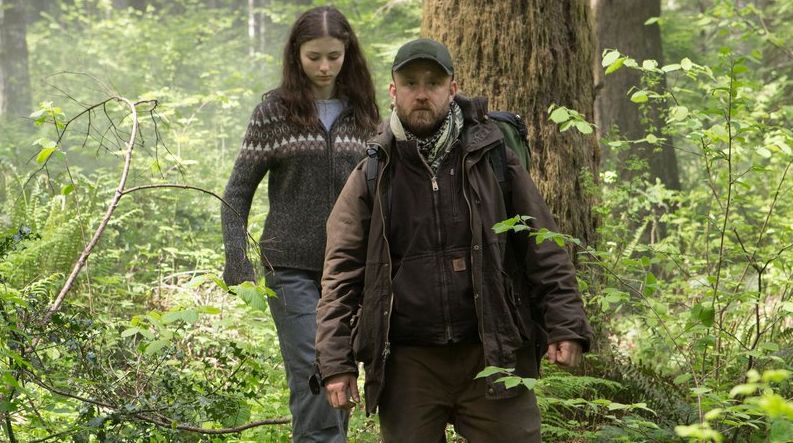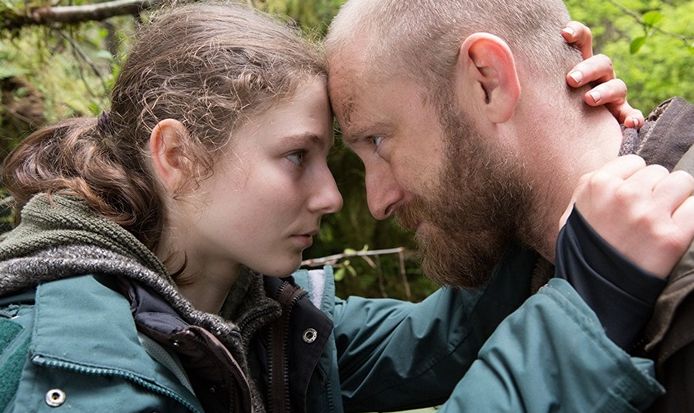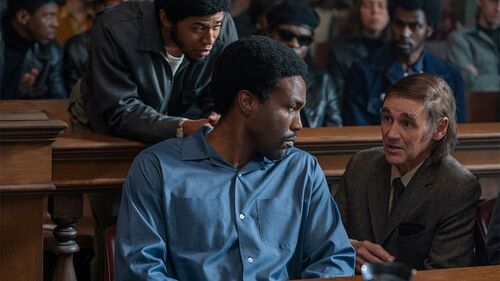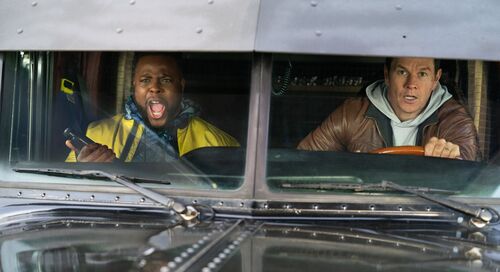
'Leave No Trace' review
 'Leave No Trace' is one of those films I will never truly appreciate till I have a kid. The world of cinema has seen countless portrayals heartfelt parent-child relationships and I am still at the phase where siding with the children in the equation comes more naturally. But it’s clear writer/director Debra Granik is telling an incredibly complex story with a certain understated precision that really caught me off guard.
'Leave No Trace' is one of those films I will never truly appreciate till I have a kid. The world of cinema has seen countless portrayals heartfelt parent-child relationships and I am still at the phase where siding with the children in the equation comes more naturally. But it’s clear writer/director Debra Granik is telling an incredibly complex story with a certain understated precision that really caught me off guard.
The easy nuts and bolts comparison here is 2016’s 'Captain Fantastic' because of the similar isolationist elements that spice up a compelling family drama. But 'Leave No Trace' is very much a film about PTSD and also a quietly effective coming of age story. There is a deftness with which Granik handles these themes, meshing them seamlessly in the quiet coda that hit me with the force of a wrecking ball.
‘Leave No Trace’, is Granik’s first fictional feature since 'Winter's Bone' in 2010, which introduced the world to Jenifer Lawrence. As fate would have it, Granik oversees another strong showing from another young newcomer, Thomasin McKenzie, who plays the 13-year-old Tom, the daughter of the grizzled Will (Ben Foster), who has this air of a tamed beast about him.
The duo live in a forest near Portland, Oregon, exhibiting innovative survivalist skills in their functional camp. How they got to this point, it is not immediately clear. There is really no backstory to the characters. All we learn, to give shape to the journey we are about to embark on, is that Will is an army veteran and that Tom's mother is dead. All they have is each other, finding contentment and deriving sustenance from their bond and the bond they have with the forest and its elemental gifts.
Needless to say, we expect the cracks to appear in their near perfect existence. As a bit of foreshadowing, we see that Tom is the one most open to compromise; like when she leans toward using a gas cooker when the shrubs are too damp to start a fire. But it's modern society that first intrudes on their marriage with nature after a bit of carelessness sees them arrested by rangers and interrogated by social workers.
There may be no criminal acts at play here but the forced integration into society is like a prison sentence – for Will at least. The pair are sent to live on the farm of a benevolent plantation owner and Will is given a job. Having being plucked out an existence that saw Will and Tom treat the environment with tremendous care and respect, the irony is that Will’s new Job sees him cutting and pruning pine trees just in time for Christmas.
Whiles the innate consumerism and the exploitation of nature eats at Will, Tom gives change a chance. She starts to adapt. She warms to having an actual roof over her head; makes friends, including a cute bunny; joins some agriculture clubs and even takes a liking to church. Tom is even thinking about starting school (in a bit of a cliché, we are told she is academically ahead of her peers). But for Will, the sight of bound pine trees or a certain beautiful moment with a horse “behind bars” in a stable rev up the restlessness within. It is soon time to move.
Like Granik’s overall approach to the film, the performances from Foster and the young McKenzie are incredibly restrained. We never see them engaging in overbearing shows of affection. There is something unfussy, a sense of impressive realism to their bond. All we get is a click of the tongue to show their love for each other. It’s ditto when the friction bubbles to the surface. Foster never raises his voice throughout the film. We never get the stereotypical row when the kid grows wings. McKenzie, whiles forceful when need be, remains soft-spoken and ever vulnerable.
Granik is also moving mountains of emotion with her camera work. Her simple framing of the two leads is impeccable and effective. So too is her use of space. I’ve never felt as much angst and pain as when watching a gap between two characters. Early in the film, we get a sense of how tight Will and Tom are because they are within touching distance in Granik’s master shots; from the strolls through the forest, when they feather mini-firewood or when they scare off wolves as they cozy up together in their warm tent.

But fast-forward to life on the plantation, when Will is quietly irked by Tom’s growth and shifting sense of agency and Granik positions her subjects at either ends of the frame, in a wide shot of their living room (which betrays its small size), for a typically subdued exchange. They have never been farther apart.
Still in this scene, there are beacons of comfort that showcase Granik’s impressive eye for detail. Will is hunched in a couch as he interrogates his daughter, who had been out building a social life. There is a lamp in the shot that provides some symmetry and perhaps hints at the first sense of enlightenment for Tom and the audience. We also see a heater, which hearkens back to Tom's interrogation by social services, where she explains why she and her dad shared a tent.
This scene, one of the best composed of 2018, is at strained as it gets in ‘Leave No Trace’ partly because Will refuses to accept the inevitable and Tom shies away from exerting full control. This is a film gushing with humanity and devoid of any form of aggression. Bundles of kindness seem to await our duo at every corner and the rural communes we spend a chunk of time seem like the perfect compromises for Will and his daughter.
It becomes clearer as the story unravels that Will’s past trauma, not some isolationist ethos, weighs heavier than we thought. Granik lay some crumbs that point towards a man drowning in PTSD. There’s the brief hum of moving choppers that rips through Will’s sleep early on. More telling is the fact he sells his prescribed PTSD medication for money, which is used for essential provisions.
This would not be the first time Granik has ventured into the area of PTSD fuelled by combat experience. She has a documentary from 2014 called 'Stray Dog' which has a number of real-life subjects. She really does understand what it means to be forced onto the fringes of society which is why there is no trace of exploitation or gratuity. Just an endless stream of warmth and empathy she believes marginalized vet deserve.
But therein lies a small dissonance at the heart of this film. Is Granik saying some people are beyond saving? Is she saying kindness and the unflinching support of family are not enough? I can’t say for sure. I’ll dig into related interviews after finishing this piece. I am certain there is a bleak streak in the narrative that begins to spread on multiple viewings. It’s a streak I wish could disappear with the stroke of a hand or hug. But it doesn’t.
It's against the backdrop of Will’s PTSD that we are meant to assess and fully appreciate Tom’s growth. And words cannot describe the moment when they finally accept the rift for what it is. “Same thing that's wrong with you isn’t wrong with me,” is the line that underpins one of the most powerful moments of cinema since, perhaps, I crumbled into a sobbing mess at the sight of a teenage Chiron being suffocated by society in ‘Moonlight’.
In a film with so many moments of overpowering beauty, our final moments with Will, at the very end, remind you of why cinema is simply an important human institution. ‘Leave No Trace’ is a film which perfectly encapsulates the idea of cinema being a machine of empathy. Granik shows that you convey strife and pain without sacrificing tenderness and affection. This for me is priceless.
-


